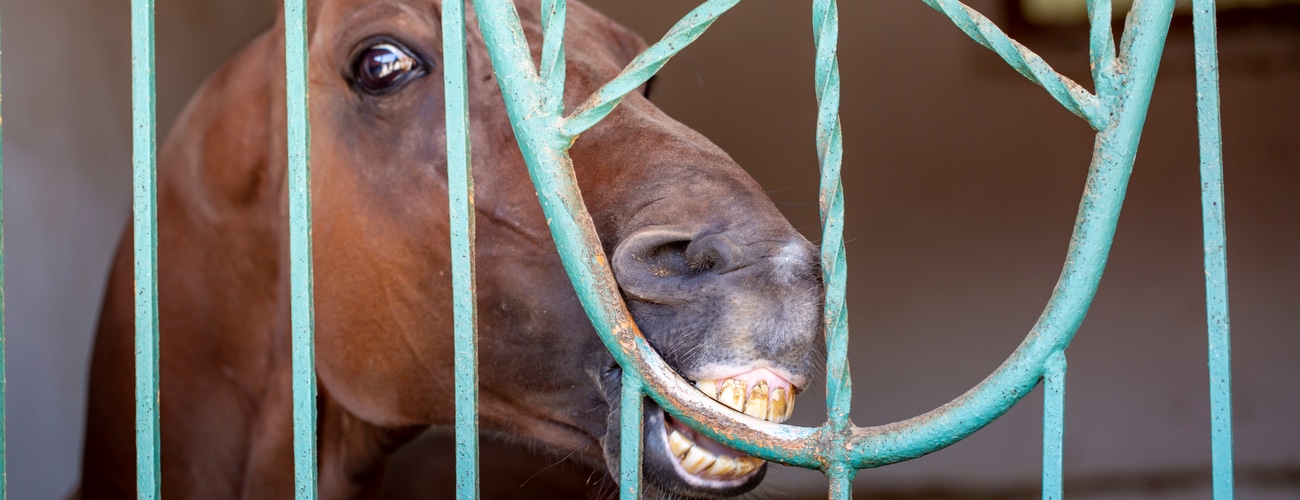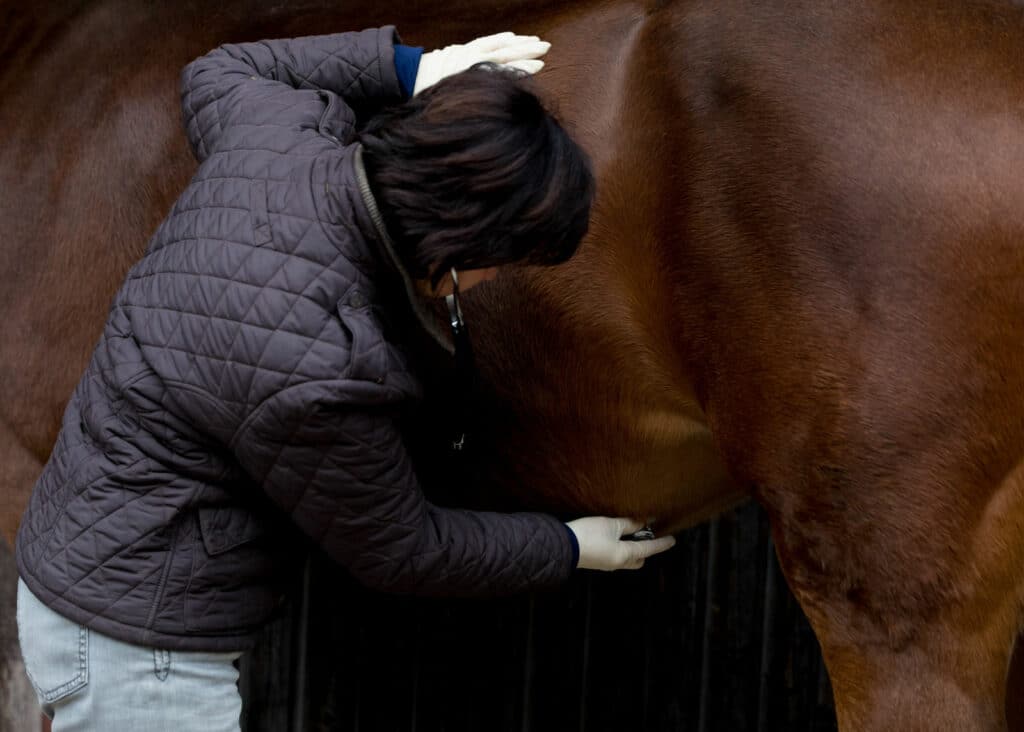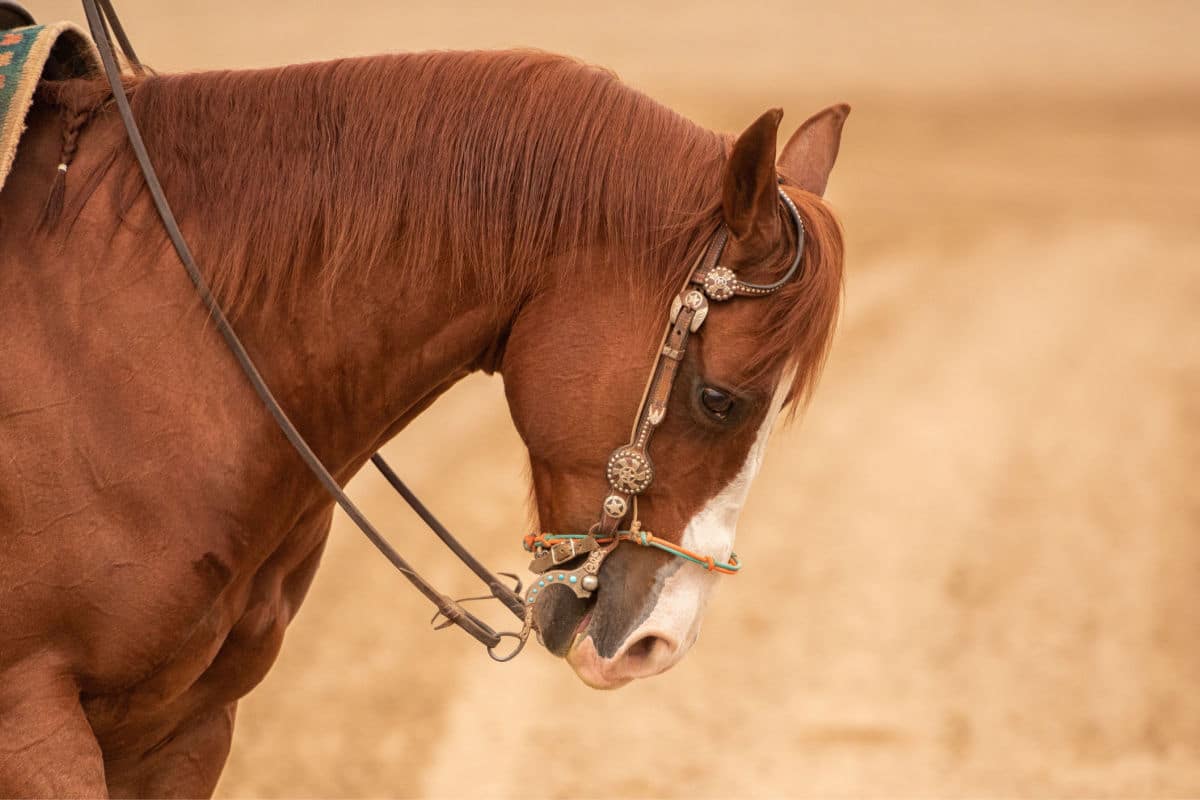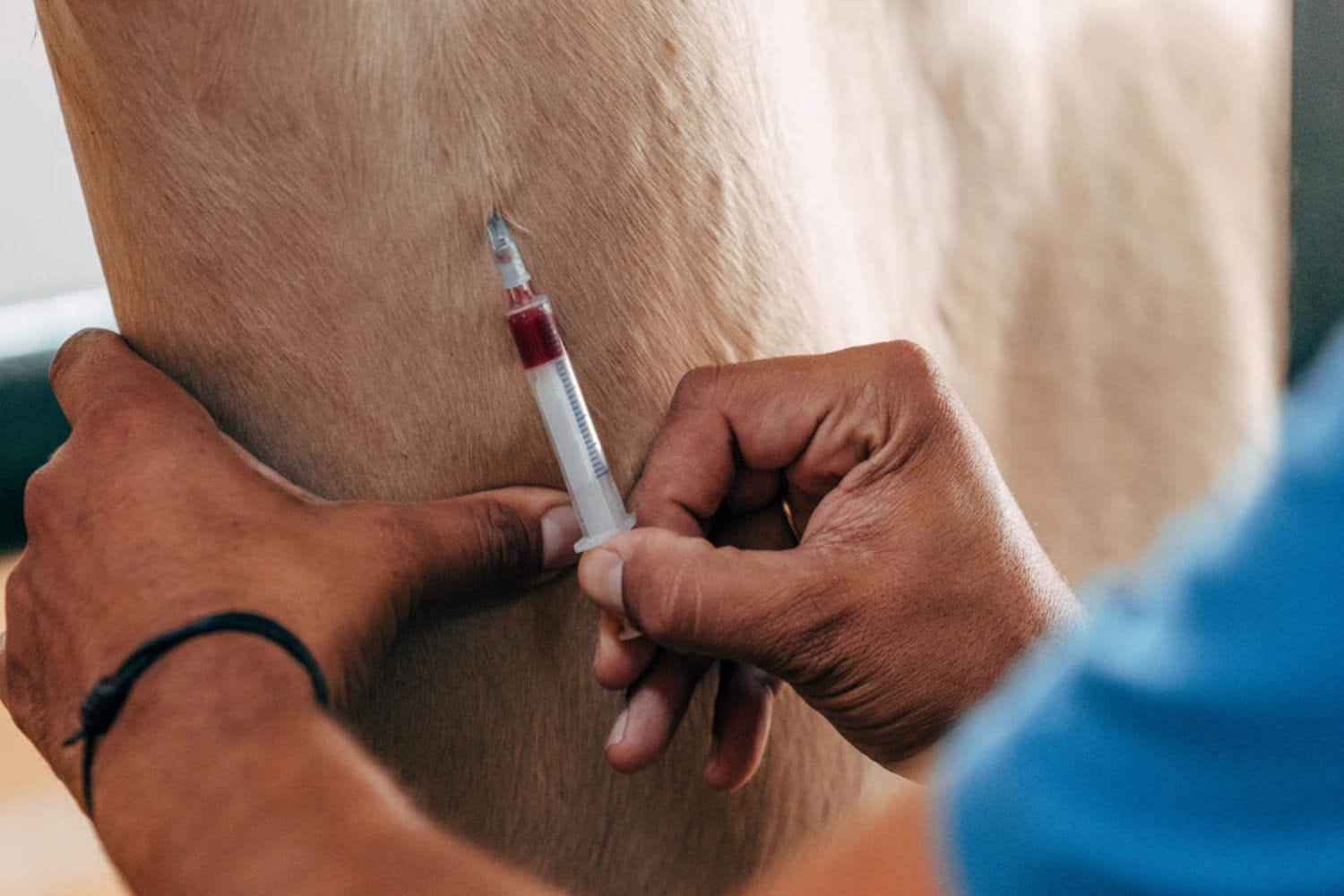Do you have a horse that behaves badly when confined to a stall? Cribbing, wood chewing, weaving, stall walking … all are troubling signs your horse is unhappy and uncomfortable. The tricky problem is figuring out why.
In nature, horses roam wide open spaces with plenty of room to wander with their herd. They graze non-stop on a variety of rough grasses, and they expend little energy. The equine digestive system is made for a very different lifestyle than a horse actively competing on the rodeo or show circuit—or even just kept stalled part of the day and fed a grain-based diet.
With the significant amount of time performance horses especially spend stalled, traveling, in new environments, training rigorously and competing, not to mention eating grain and being fed a few large meals a day, digestive issues run rampant through them. Stable vices in these horses, then, are often a side effect of deeper health issues that form as a result of this lifestyle.
Stable vices in horses typically come in the form of negative behavioral habits that can lead to further health issues or injuries if not properly managed. Stall vices are extremely frustrating—for the horse that is clearly unhappy, for owners who want their horses to be well, and for facility managers dealing with damage to their property. Most importantly though, these vices often lead to additional health problems related to the hooves, teeth, weight, stress and injury.
To address the horse’s outward bad behavior, you need to first address the internal problems that may be causing it.
Stable Vices May Indicate an Underlying Health Issue in Horses
Generally, when a horse begins to display stall vices, the first reaction is to correct them as behavioral issues. Cribbing collars, hobbles, calming supplements, toys, mirrors and companion animals are all temporary solutions many owners try. But they are just band-aids covering the surface of what are much deeper stress and/or health issues.
Additionally, some veterinarians even say that it’s better to allow the horse to continue with its vice as a learned coping mechanism, if it’s not causing further health concerns.
There is strong evidence to suggest that stall vices in some horses may indicate an underlying health issue. Instead of trying to stop the behavior, these symptoms should be addressed by finding and fixing the root cause. While there are a variety of issues that can lead to stable vices, digestive health problems are a major contributor that arguably should be the first thing you address with an unhappy horse.
Types of Common Stables Vices in Horses
Stall or stable vices come in many forms—cribbing, pawing, stall-walking, weaving and wood chewing. If you consider the evolution of horses from grazing in open fields all day long, to now being stalled most of their time and eating two or three large meals a day, it explains why so many horses have a poor response to this way of life.
Digestive discomfort is very common for horses and has a significant impact on their behavior, mood and performance. Digestive issues like ulcers, colic and loss of appetite are all common with performance horses.
Each of the following stall vices could be symptoms of poor digestive health:
- Cribbing – When a horse bites down on and latches to a hard surface (typically wood) with its top teeth, flexes its neck and sucks air, making a grunting sound. Cribbing could be a result of dietary imbalance, gastrointestinal discomfort and could even be an indication of gastric ulcers. Sucking in air expands the stomach, causing acid levels to drop away from irritated portions of the stomach lining and providing momentary relief.
- Pawing – When a horse paws or digs at the ground with its hooves. Pawing is a very common vice that can happen for several reasons, but is often overlooked as just a behavioral issue, when really it could be the horse indicating discomfort caused by digestive imbalance. If a horse is uncomfortable or in pain due to digestive imbalance, hindgut acidosis, or even gastric ulcers or colonic ulcers, they will tell you with their behavior.
- Stall-Walking – When a horse paces back and forth, walks in a constant path around its stall or in frantic patterns. Stall-walking may stem from lack of grazing and the effects that has on the digestive system. The relatively small stomach, which secretes acids continuously, is designed to accommodate a small and continuous flow of high fiber material, the result of constant grazing on grass. Without this constant grazing pattern, horse’s stomachs are left empty for long stretches and the acids painfully unbuffered.
- Weaving – When a horse moves or rocks its head and neck side to side, while standing still. The movement is rhythmic, but often frenzied. Weaving is another example of the horse possibly indicating discomfort from digestive imbalance. The design of the digestive system in a horse reflects the natural lifestyle and feeding patterns and does not naturally accommodate current and common feeding regimens.
- Wood Chewing – When a horse chews or gnaws on stall areas, wood on trees, fencing and other barn areas. Excessive wood chewing may indicate a horse is suffering from an unbalanced diet, specifically poor forage intake.
Diagnostic Testing and Digestive Support to Curb Stall Vices
As a starting point to see if your horse has a digestive health problem, ask your vet to test with SUCCEED Equine Fecal Blood Test.
The SUCCEED FBT is a non-invasive, rapid, stall-side test that uses antibodies to detect two equine-specific blood components in a fresh manure sample. It is a simple diagnostic method specifically for identifying problems in the horse’s GI tract, and it can also help to determine if the problem is in the foregut, hindgut, or both.
The FBT offers a simple, inexpensive tool for your vet to test your horse and see if the stable vice behavior could be related to a GI condition.
Good Management for Better Digestive Health in Horses with Stable Vices
A performance horse, diagnosed with a clear GI condition or not, will always benefit from management changes designed to reduce stress and promote better digestive health.
The steps you should take to ensure your horse’s internal and mental wellness include:
- Increasing turnout
- Decreasing grain-based feeds
- Feeding in multiple small meals throughout the day
- Providing free access to quality forage
- Making sure they have company (they are social, herd animals)
- Supplementing with ongoing nutritional support to keep the GI tract healthy
When shopping around for a digestive health supplement, look for products high in these components that research shows support the health of the entire equine digestive system:
- Polar lipids: Shown to assist with nutrient absorption, strength and integrity of the intestinal mucosa barrier, and normal brain function.
- Beta glucan: Shown to be useful for maintaining a healthy rate at which food moves through the digestive tract, regulating the release of sugars from the digestive system, and supporting natural immunity.
- MOS: Supports a balanced microbiota and a healthy immune system response. o Nucleotides: essential for cell growth and repair and help maintain a healthy intestinal tract while beta glucan protects the hindgut.
- L-glutamine: Provides fuel for intestinal epithelial cells (which make up the first layer of the gut lining) and assists with nutrient absorption. It also strengthens and helps to reconstitute the mucosal barrier.
- L-threonine: Contributes to a smoothly functioning GI tract. It also assists metabolism and nutrient absorption while also contributing to mucus production.
Getting a horse in good digestive health is the first step you should take in your efforts to curb stable vices. When you go the extra mile to manage and support good digestive health, you will actively see the benefits in your horse’s physical wellness, behavior, attitude, performance and overall happiness.
Talk to your vet about your horse’s digestive health and ongoing management, as well as what feeding changes you can implement today to make a difference.




